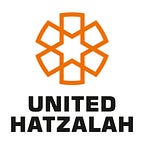Finding the Motivation To Keep Going, Even When We Don’t Succeed
On Wednesday afternoon in Givat Ze’ev, a young boy just under two years old was playing in his backyard when he tripped and landed on the family’s jacuzzi. The jacuzzi was covered but due to the recent rains, a large puddle had formed on top of the cover, and the young boy drowned in the puddle. Upon seeing the boy lying on the flooded cover, his parents called emergency services for help. They simultaneously scooped up the boy and ran outside to the street where they happened upon one of the town’s security vehicles and screamed to the driver to stop and help them.
The driver was the town’s security chief and called on his radio to emergency services asking for directions on how to properly perform CPR on a young child.
United Hatzalah volunteer EMT Raziel Zada was at his home in Givon, the next town over, when he received the emergency alert. He was alone with his five-year-old daughter and received the notification that he was one of the closest responders to the emergency. “I had just put food on the stove for my daughter to have for a late lunch when I received the emergency alert,” Zada recalled. “At the same time I heard on the security channel our chief ask for directions on how to do CPR. I turned off the gas, grabbed my keys, and shouted to my parents who live in the next house to come and watch my daughter, and then I rushed out.”
Zada arrived just a few minutes later and was the first medical responder at the scene. He didn’t even have time to don his vest or grab his medical kit as he rushed to help the baby. He shouted at one of the bystanders to grab his medical kit from the trunk of his car and bring it over. He took over compressions from the security chief and then rotated out once more in order to attach a defibrillator and an oxygen mask.
“The defibrillator did not recommend a shock so we kept on performing compressions and delivering assisted breathing in the hopes of saving him. An additional United Hatzalah volunteer, Aharle Pump arrived and assisted as well. A few minutes later a local paramedic, Dudi Gur showed up and also began to help. 15 minutes after I arrived the first ambulance came, with only a driver who was also a paramedic. He attempted to open an IV line and failed. A short while later the mobile intensive care ambulance came and joined the effort and we managed to get a steady pulse back. For a short time, the story seemed to have a happy ending, but alas, in spite of our best efforts it wasn’t meant to be.”
After the team in the field managed to get a steady pulse back in the young boy and he was stabilized, the ambulance took him to Hadassah Har HaTzofim hospital where he underwent additional treatments. However, later that evening the doctors called the family into a room and told them that they hadn’t seen any brain activity in the boy for a long time and that they were forced to pronounce the young boy’s death.
“We were nervous all day,” recounted Raza. Everyone who participated in the CPR effort was emotionally struck. This isn’t my first CPR, and CPR incidents on children are always difficult. They move you and make us recognize, no matter how much we don’t want to, just how fragile life really is. Even when we thought the boy was going to survive we were all a bit of an emotional mess. The Psychotrauma and Crisis Response Unit (PCRU) from United Hatzalah reached out over the phone and debriefed us and provided emotional and psychological support for those who were at the scene, even those who aren’t volunteers of the organization. That’s what they do and they are good at it. It really helps.”
Zada said that when the news hit that the boy was declared dead it was a difficult moment for him. “I am thankful that I have my own family to steady me in these times and that I have the family of United Hatzalah as well. The chapter head of Givat Ze’ev, who is also in the PCRU called me and Ahrale and spoke to both of us. Other volunteers from our chapter and beyond reached out to make sure that I am okay. I am thankful to be a part of this family, and I am thankful that this organization is run by Eli Beer. If it weren’t for him, his ideals, and his style of leadership, this organization would be very different and much more difficult to be a part of. Eli himself is a shining example of what it means to truly care about another person and to put them first and be there for them in their time of need. Without that, and without the sense of family that he has instilled in United Hatzalah, I don’t see how this organization would exist.”
Zada concluded by expressing just how important the support of family and fellow responders is after an emotionally supercharged emergency such as this one is. “There is no way to find comfort in this except in the knowledge that we did everything we could to save the boy and God simply said no. We did everything correctly, and we will do everything correctly next time and hope that the outcome is different and that we will save a life. It is because of the support and motivation I receive from the people in United Hatzalah, my fellow responders, the PCRU, and Eli himself, that I am able to keep doing what I do, and am able to keep rushing out to save lives, even though I know we won’t always succeed.”
